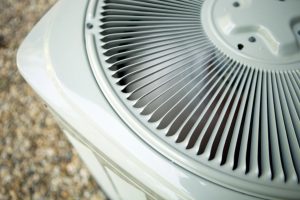 Florida summers are long and hot, and chances are you’ve already had to run your air conditioner more than once this year. If you have an older air conditioner that feels like it’s on its last legs, now is probably the best time to schedule the installation of a new system. Doing so lets you take advantage of the benefits of a new system–such as improved efficiency and reliable functioning–before the heat of the summer begins in earnest.
Florida summers are long and hot, and chances are you’ve already had to run your air conditioner more than once this year. If you have an older air conditioner that feels like it’s on its last legs, now is probably the best time to schedule the installation of a new system. Doing so lets you take advantage of the benefits of a new system–such as improved efficiency and reliable functioning–before the heat of the summer begins in earnest.
But how can you tell if your air conditioner is really ready to be replaced? Is your system in dire need of being put out to pasture? Or can you keep it running for another few years and get some more reliable use out of it? Ultimately, only you can properly answer that question. There are, however, a few guidelines to help you make up your mind on the status of an older air conditioner. They boil down to the cost of keeping the existing system against the cost of installing a new one.


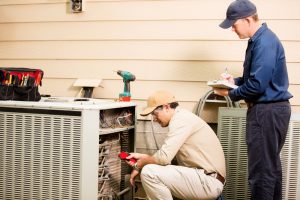 When it’s hot outside, you know you need your
When it’s hot outside, you know you need your 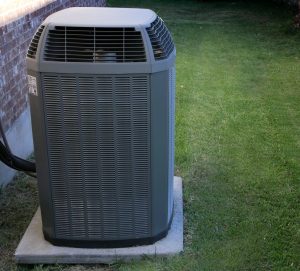
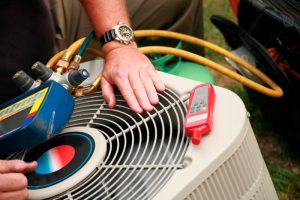 “Does it just need more Freon?” is a question we hear quite frequently from our customers when the air conditioner is not working quite right. Yes, sometimes an air conditioner does need more refrigerant (the generic name for the chemical blend in your air conditioner). However, it’s usually much more than that, requiring sealing or a refrigerant leak—or a different problem altogether.
“Does it just need more Freon?” is a question we hear quite frequently from our customers when the air conditioner is not working quite right. Yes, sometimes an air conditioner does need more refrigerant (the generic name for the chemical blend in your air conditioner). However, it’s usually much more than that, requiring sealing or a refrigerant leak—or a different problem altogether.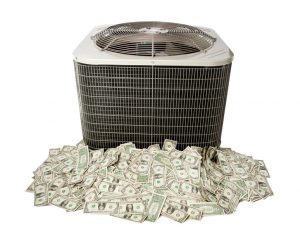 When shopping for nearly any electronic these days, you’ll find some kind of information about its energy efficiency as you compare products. Washing machines, TVs, and even landlines and fax machines may all carry the ENERGY STAR label, which shows that a system has met the energy requirements set forth by the EPA.
When shopping for nearly any electronic these days, you’ll find some kind of information about its energy efficiency as you compare products. Washing machines, TVs, and even landlines and fax machines may all carry the ENERGY STAR label, which shows that a system has met the energy requirements set forth by the EPA.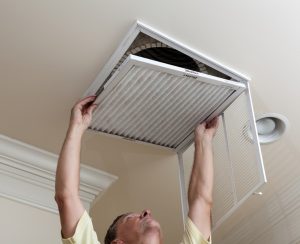 When an air conditioner won’t work properly, people often assume what they know to be common air conditioning problems. They may ask us, “Does it just need more refrigerant?” Or, “Is the thermostat broken?” We should let you know, before we move on, that while refrigerant leaks are common, simply refilling the refrigerant is rarely a solution. You must seal the leaks, too.
When an air conditioner won’t work properly, people often assume what they know to be common air conditioning problems. They may ask us, “Does it just need more refrigerant?” Or, “Is the thermostat broken?” We should let you know, before we move on, that while refrigerant leaks are common, simply refilling the refrigerant is rarely a solution. You must seal the leaks, too. Winter is coming, and that doesn’t mean much when you live in the Tampa area. You can expect cooler weather, sure, but there are unpredictable moments when you may still want to use your air conditioner. Still, it gets a nice break during this season, which helps you to save energy—especially if you’ve got an older air conditioner that no longer runs efficiently.
Winter is coming, and that doesn’t mean much when you live in the Tampa area. You can expect cooler weather, sure, but there are unpredictable moments when you may still want to use your air conditioner. Still, it gets a nice break during this season, which helps you to save energy—especially if you’ve got an older air conditioner that no longer runs efficiently. We all know how draining the effects of high humidity can be. If you live in Florida, you deal with it all the time. You’re thankful to have a central air conditioning system to come home to on a hot, humid day. But is this really the solution your home deserves?
We all know how draining the effects of high humidity can be. If you live in Florida, you deal with it all the time. You’re thankful to have a central air conditioning system to come home to on a hot, humid day. But is this really the solution your home deserves? The perfect
The perfect